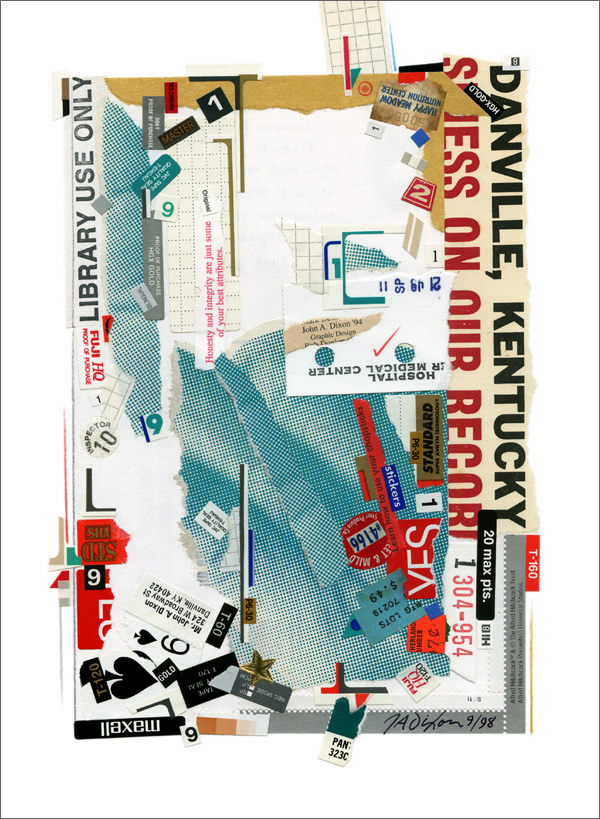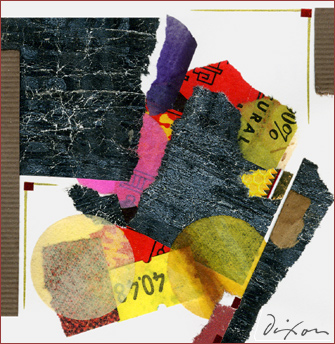“At first I put anything and everything in — phone numbers, appointments, grocery lists, in addition to things related to what I was thinking about for my work. Over the years the contents have become a shade more formal, and much more visual. There’s less of my hand (in the sense of sketches and drawings), more reliance on found material. But I’ve tried to keep the whole thing as loose and freewheeling as possible.”
— John Willenbecher
When I was 21, I had a single conversation with a man named Henry who boarded at the Cincinnati house where I lived. He seemed much older at the time, but I would guess now that he was barely 25. What I took away from that one exchange was Henry’s strong conviction that I should start a journal, as he had done several years before. Heeding his invaluable advice, I kept an active journal close at hand from that point forward. At first, it was just words, because I already had various sketchbooks as a student. Eventually, it became a comprehensive repository for personal notes, musings, doodles, and thumbnail ideas. As time passed, the content took on more of the character of visual exploration, with whole pages devoted to spontaneous collage experiments and studies for what might or might not lead to a finished artwork. I discovered that John Wllenbecher and others were calling their volumes “commonplace books,” a term more strictly applied to a “verbal scrapbook.” For some reason, mine also seemed a bit large for that particular name (sometimes 11 x 14, but most often 8.5 x 11), and so I’ve always continued to think of them as my journals. In combination with the many hundreds of handmade greeting cards I’ve created over the same period of time (nearly 40 years now), these private “chronicles” have served as the primary incubator for my work as a collage artist.

Untitled (Library Use Only)
journal collage by J A Dixon
8.5 x 11 inches, not for sale
